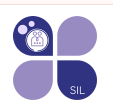This two-part series will support practitioners to consider how to create a vocabulary rich curriculum and how to put this into practice, with a focus on the role of the adult and the enabling environment.

Course Overview
This two-part series will support practitioners to consider how to create a vocabulary rich curriculum and how to put this into practice, with a focus on the role of the adult and the enabling environment.
Why attend?
To consider ways to ensure curriculum builds and sequences vocabulary development. · To strengthen understanding of the role of the adult and how interaction can best support vocabulary development for all stages in EYFS. · To develop practical ideas to optimise daily routines and the learning environment to increase children’s vocabulary.
What will it cover?
Why communication and language development is critical · How to ensure curriculum is vocabulary rich · How practitioners can develop young children’s vocabulary · How to create a language rich environment
Any supplementary information
There will be a gap task for delegates to complete
Who should attend?
Early years teachers/practitioners and leaders who want to ensure communication, language and vocabulary is a priority within the curriculum offer for the school/PVI nursery setting
We aim to work with all educational settings to support them to improve and provide the best education to their children and young people. We will support this through our knowledge, responsive services, training and products.
Collaborative
We champion and broker collaborative working. Learning with our settings, for our settings. Securing and enabling high-quality educational improvement capacity, utilising school, sector and other capacity, and effectively marshalling limited resources.
With
Purpose
We advocate and deliver against needs, championing children and young people, supporting our schools and settings to enable every child and young person to be safe, develop, learn, achieve.
Knowledge
Our staff stay abreast of national developments and emerging research, continuously improving knowledge, experience and skills, helping our customers navigate the complexities of the system. The application of our knowledge is always tailored to the needs of the setting.
Integrity
We are trusted and trust each other. Honest and transparent in the delivery of our services. We demonstrate ethical behaviours, holding the needs and outcomes of those we serve central in all that we do.
© 2025 coursetakers.com All Rights Reserved. Terms and Conditions of use | Privacy Policy